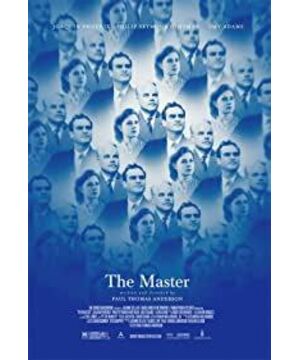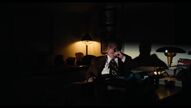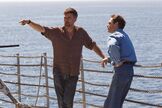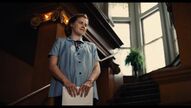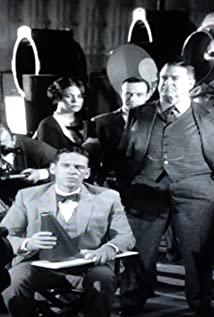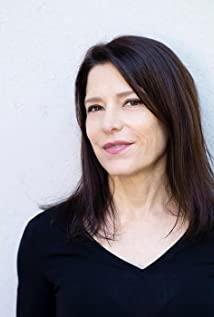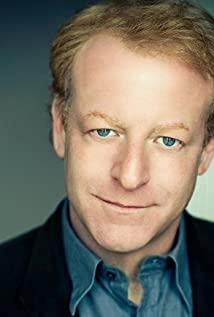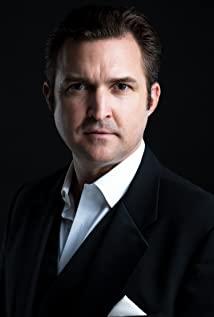In fact, he was indeed rejected by "normal people". He was sent to a mental hospital by a social institution after leaving the battlefield. After returning to society, he showed unwelcome characteristics in every position of her, so Freddy could only Semi-forced self-imposed exile, exile—essentially, repeated experiences of integration and departure from one group to another.
But the people's place has always been a conflict of free will and power asylum, although Freddy hadn't realized he was going to be a mess when he stumbled across the small cruise ship with the happy crowd. The inclusion and exclusion brought about by entering a new group of people, the original desire that he could not hide carries the original human need, the extreme need for sex (compared to the sexual desire that has been suppressed in the military career), and the need for self-existence. An extreme desire to be recognized. So when Lancaster, who always stood out in the crowd, squeezed out of the crowd, they developed an attraction to each other, and Freddy tried Lancaster's "discovery" in the field of psychoanalysis to heal his displaced. In half a lifetime of memory, Lancaster also found resonance with Freddie while enlightening him. Gradually, he would inadvertently forget the distance between a master and mortals that he and Freddy had to keep apart, and introduce him as a bosom friend. . This result has brought a remarkable brotherhood of offense and defense for both of them. As many film critics have mentioned, Freddy and Lancaster are two sides of a complex personality, who admire each other and at the same time have a profound and irreconcilable contradiction.
First of all, Freddy was around Lancaster. Like many of his followers, he felt that Lancaster's huge personal charm was undoubtedly hard to ignore. He was happy to accept his generous hugs and smiles and guide him. To a stable collective to share the secrets of human interdependence. But it was only because the object was Lancaster, not his mind. Freddy was willing to pick up the slack to keep Lancaster's friendship and even stand any test he gave him, but he resisted instinctively and also Disregarding Lancaster's mind control, he cannot be strong under his wings, nor forever, so to speak, and he denies his image as power itself.
There are three appearances in the play. Freddy is irritable and "slams the injustice" for Lancaster's external doubts. He can't stand the insults and ironies of Lancaster himself and his career. He is willing to use violence to defend Lancaster. Caster, this extreme behavior conceived for Lancaster, in addition to frightening the madness of others, has been mistaken to a certain extent as a demonstration of his absolute "loyalty", an image of being enslaved by success. , Lancaster also got carried away for a while, intending to make Freddy a living example of the triumph of his own will. Nor does Freddy realize that he is, in himself, Lancaster's self-doubting anti-personality figure.
The encounter between Lancaster and Freddy is portrayed so haphazardly, and the emergence of such a person out of a chance brings you new revelation, Freddy's personal conscious free will, close to the morbid immunity. As a subject worthy of study, Lancaster, who is familiar with breaking the secret key of the soul, feels the joy of the challenge, but after all, it is this unforgettable relationship that makes him realize that the other party is inescapable of his own path. Inner demon, Lancaster put Freddy by his side. He would not let the aggressiveness of the outside world hinder his relationship with Freddy, but he would never allow or let Freddy out of his sphere of influence. Otherwise, it will bring disaster to Chiyu, and it will destroy the source of his power.
In the final analysis, Freddy's need for Lancaster was a need for interdependence among the crowd, not a need for enslavement. When Freddy approached the crowd, he found that the crowd could not be separated from slavery. He worshipped Lancaster. Caster, and Lancaster also needs him, but their relationship cannot be equal, although they support each other in spirit, but because of the clear master-servant relationship in the crowd, one can only control Another person comes to stabilize the rules and order of the crowd.
So Lancaster still needs a stronger personality to remind him to quench those interference from outside. Master's wife, as another more dominant and vigilant personality, keenly discovered that Freddy's negative influence on Lancaster had endangered the rationality of their career itself. Lest Freddy's being unconquered would eventually allow the master's self-doubt to prevail, which would undoubtedly be devastating to their careers.
Humans’ inclination toward community is natural, and when our free will is still immature, we are naturally attracted to a powerful, purposeful assembly that symbolizes safety, security, and acceptance. This has become the criterion of "victory" in our consciousness.
Lancaster emphasized to his followers more than once, a smile. Smiles play a decisive and crucial role in life, in solving their problems and the plight of human beings. Throughout our history, our politics, our surroundings, we can receive the message that a strong community always preaches to his audiences happiness, smiles, inspiring optimism, to live positively, to confess, to Share yourself, have no secrets, curb desires - and Freddy never seems to think his desires are a problem to be solved, on the one hand Freddie accepts Lancaster's asylum, on the other hand Freddie is also here Those beliefs and treatments that make everyone happy in the collective are unmoved, no matter how powerful the domestication force Lancaster racked his brains to suppress on him, and even this concern itself caused the jealousy of his family and believers. Neither Leedy could be saved from the "protection" provided by this community. Who can not be impressed by Lancaster? In the routine audiology diagnosis, the laughter and laughter of ordinary gatherings, only Freddy, only he can escape naturally, carrying his own memory and real life experience, without the burden of past and present life, but still Tired.
This is not acceptable. Conquering Freddy in front of people suddenly became a key node for Lancaster to complete his career ambitions. Freddy represented part of his longing and affirmation of the value of life. His rebellion, his unconquerable, heralded his The cause of his work can neither help people find freedom and peace in the difficult world, and at the same time indicates that no matter how strong the resistance, the awakening of free will will not be eliminated. In front of everyone, Lancaster trains Freddy to touch one end of the living room to the other, a window on one end and a wall on the other. In countless experiences, he searched for what Lancaster asked him to find. In the end, they embraced each other, and the conflict with the crowd was resolved in front of everyone, but it grew in the dark. He knew he would never be accepted and he would never be one with them.
For Freddy, a really good world doesn't exist yet. Here Lancaster can't be his partner, he poses a threat to the environment and if he chooses not to run away from this place (break the window), his destructiveness will capsize this room from the inside Stand (kick that wall).
The fatal attraction of Lancaster is the siege, encroachment, and enslavement that Freddy is all too familiar with. The conflict created by the fit is like the inability to get rid of the place Lancaster has laid in his mind. Soon, because of his loneliness, he hopes to regain his tenderness in the collective. He finds Lancaster again. Lancaster seems to be talking to another self, hoping that he will have another way out, instead of being the same as everyone, Live enslaved by the will of power.
"Master" not only presents us with a controversial history of the rise of religion (human organization), it also applies to a broader vision, our freedom is only to choose to express surrender under different wills of power. From this point of view, the past evil of Scientology in history is nothing but a cat and a tiger. We should never be surprised at what form it exists among us. In fact, "God bless the world" and being sheltered is a must. freedom as a price.
In the end, what exactly is a normal population, a collection of all human beings who are generally in a rising period? Enjoy the social consensus of mutual respect and mutual trust under the large or small community? The reason why it is normal is because we wantonly suppress, attack, and eliminate images that we regard as aliens in order to maintain our "stability". Religion is, after all, an organization of human beings, and human organizations are driven by the good and evil of human beings, and our social system, government agencies, and social groups are not outside of it.
At the end of the film, Freddy returns to a life of alcoholic, carnal poverty. No new world has opened its arms to him, our free world has not yet come.
I think there must be a better life for us to discover.
View more about The Master reviews


